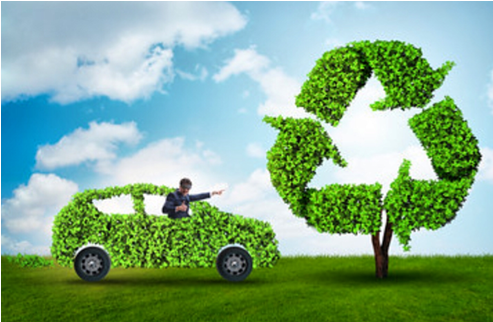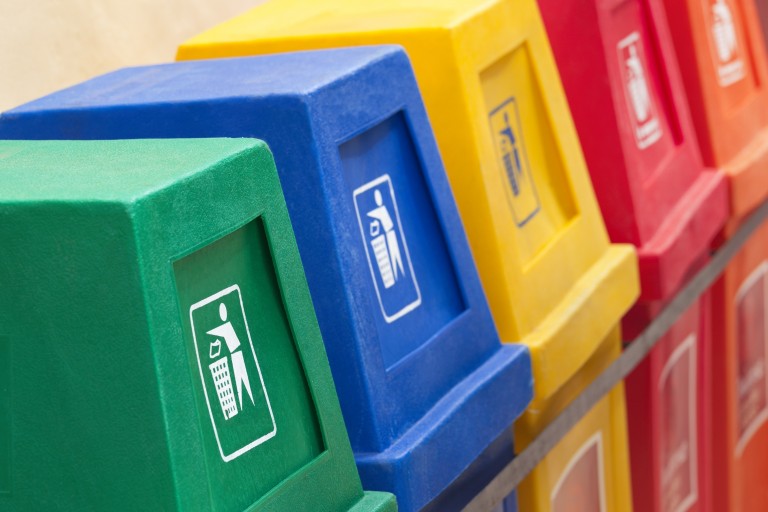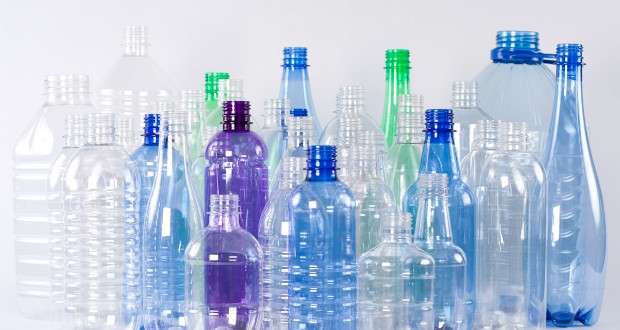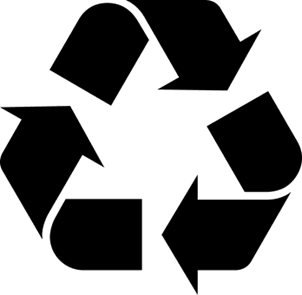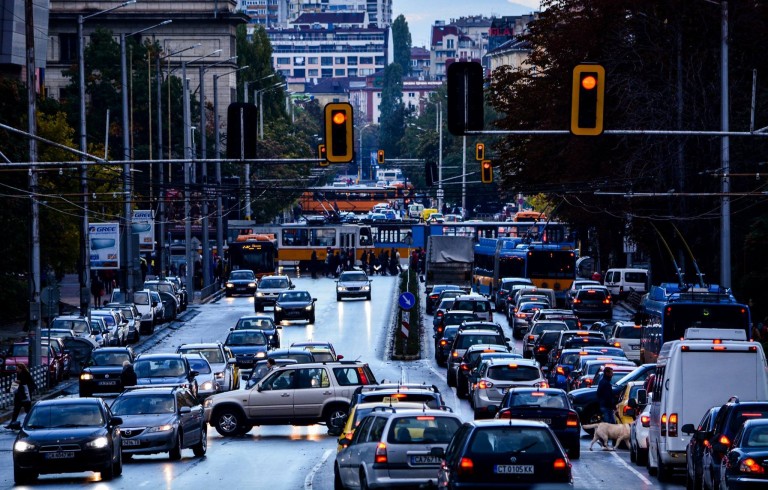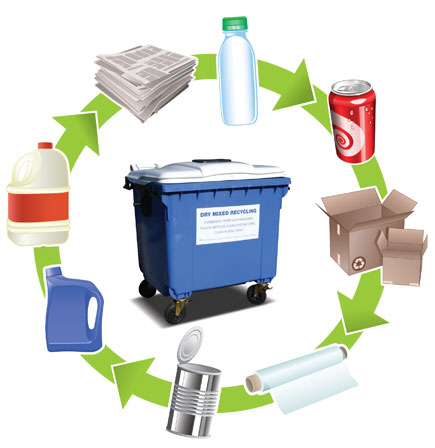Top benefits of recycling

A common symbol that can be seen on bags, trucks and waste boxes is the symbol of recycling. The phrase “Reduce, reuse, recycle” is taught to children around the world in the hope of creating a clean environment. We all know that the recycling is a simple way for everyone to contribute to the creation of a better world. But certainly there should be more benefits of the recycling, not only to reduce the amounts of waste that we throw away. Ultimately, it takes time and effort to collect and separate the waste. But the fact is that there are many ways to do so in order to turn our world into a better and happier one.
One of the main reasons why waste recycling is encouraged is that it reduces the pollution of the environment. By using modern, ecological methods for the manufacturing of products which we consume, we can slowly reduce the amounts of the landfilled waste and increase the amounts of recycled waste.
If no action is taken in this respect and given the fact that the population is constantly growing, it will be difficult for the landfills to collect so much waste. When this happens, our cities and beautiful nature will face pollution, poisoning and many health issues.
The benefits of recycling is that it helps to monitor the pollution and to reduce it gradually. We all know that the natural resources in the world will be exhausted and some of them are already available in small amounts. The benefits of waste recycling are simple, but the effect that they could have is huge. This is why so many countries support the process and guarantee that their citizens have no problems when they want to start recycling.
Recycling preserves the natural resources
- Recycling of paper and wood saves trees and forests. Yes, you can plant new trees, but you can’t replace the virgin forests after they are destroyed.
- Recycling of plastics means production of less amounts of new plastic, which definitely is something good, especially because it is made of hydrocarbons of fossil fuels.
- Recycling of metals means that there is less need of risky, expensive and harmful extraction of new metal ores.
- Recycling of glass reduces the need to use new raw materials such as sand – sounds strange, but the supplies of some types of sand start to worsen globally.
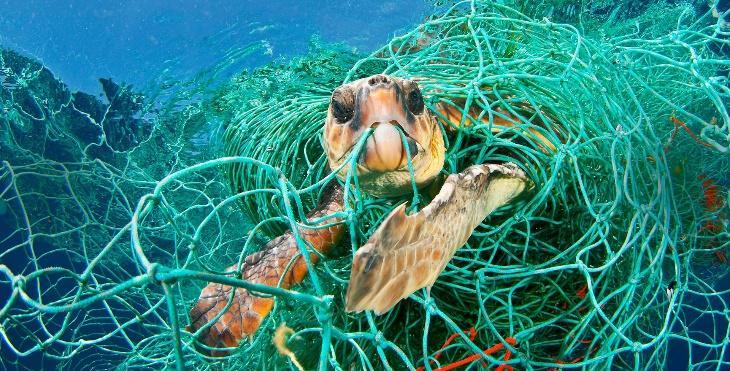
Recycling protects the ecosystems and wild nature
Recycling reduces the need for growing, collecting or extracting new raw materials from the Earth.
This, in turn, reduces the harmful destruction and the damages caused to the natural world: less destroyed forests, diverted rivers, injured or displaced wildlife animals, less contamination of the water, soil and air.
Recycling also keeps waste outside the environment. As you know, a large portion of the plastic waste end their life cycle in the oceans where they have devastating effect.
Recycling saves energy
Making products from recycled materials requires less energy than to produce them from new raw materials. Sometimes this is a huge difference in energy – for example:
- The production of new aluminum from the old (including recycled boxes and folio) uses 95% less energy than making it from scratch. For steel production the energy saving is up to 70%.
- Making new paper from recycled paper requires 40% less energy than making it from pure wooden fiber.
- The amount of energy that is saved by the recycling of one glass bottle, can feed an old 100-watt bulb for 4 hours – and a new equivalent to the low energy LEDs for a much longer time.
Recycling reduces the carbon emissions changing the climate
Recycling provides the use of less new raw materials and less amounts of energy for the production of new goods. In this way, lower carbon emissions will be generated by reducing landfilled waste and emitted methane from it.
Reducing emissions of carbon dioxide and other greenhouse gases in the athosphere is vital in order the catastrophic climate change to be stopped.
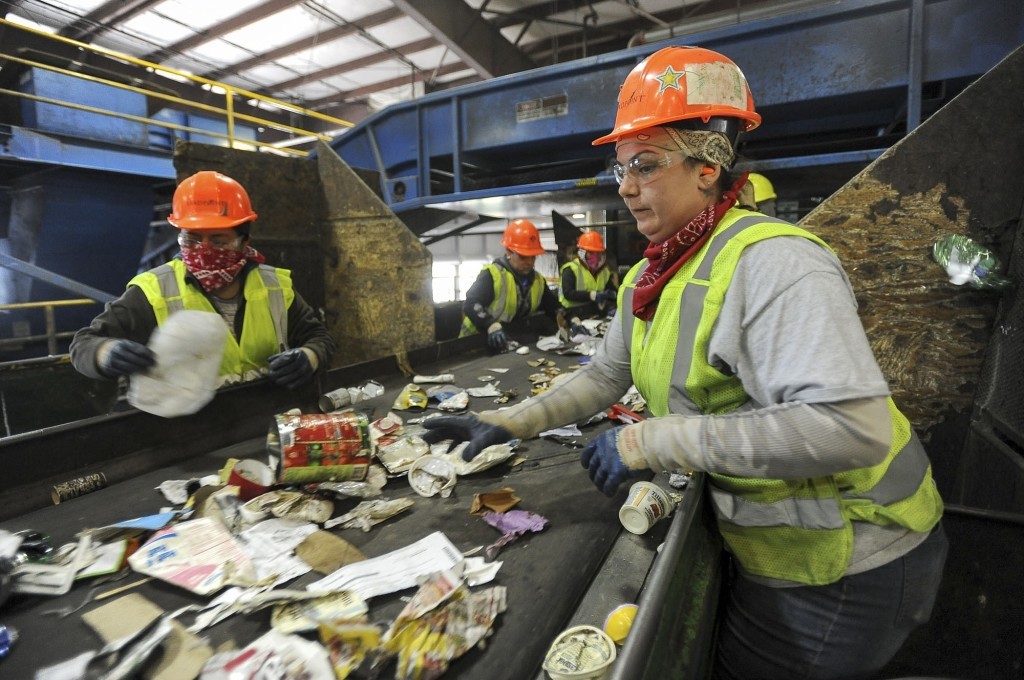
Recycling reduces the amounts of waste in the landfills
Disposal of generated waste in the landfills is very wasteful. Imagine all potentially useful reusable materials that have been landfilled during the last decades. This is a waste of good raw materials.
The waste accumulated in the landfill directly pollutes the soil and water by depositing harmful and toxic fluids over time. The landfill also releases greenhouse gases such as methane, in the atmosphere. And, of course, it occupies valuable land space.
Recycling is cheaper than collecting and disposing of waste
The more you recycle, the more money you save, and this would be useful for the households, business and the local public services.
Recycling of food waste and green waste is also a wonderful idea, often generating very valuable products that can be used for the cultivation of more foods and other cultures.
One very useful scheme, encouraging the recycling, is the introduction of deposit system, for example, for glass bottles. In this way can be offered an additional financial stimulus for recycling – because you will lose your deposit if you don’t do it.
If you have any doubts, just remember these three things that help to reduce the amounts of landfilled waste, and the use of new natural raw materials:
- Reduce;
- Reuse;
- Recycle.
Recycling helps to reduce the amounts of waste that we produce, but the best thing is to reduce the amount which we use at first place.
